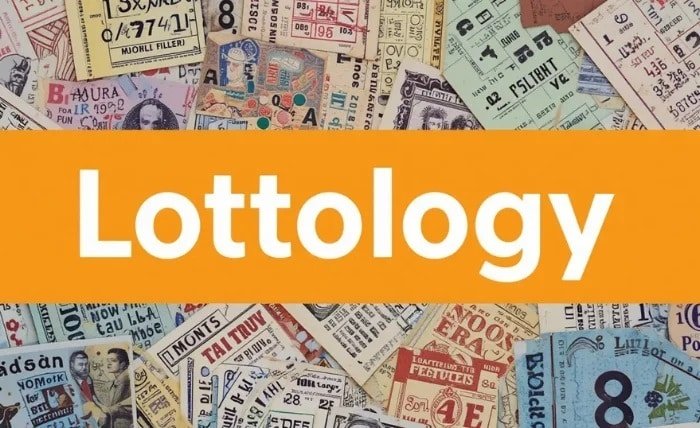What is Lotology? Understanding the Science of Lottery Systems

Introduction
Lotology is a term that refers to the scientific study and analysis of lottery systems. While the word might not be commonly known to everyone, it has garnered attention in various academic circles and among gambling enthusiasts. The primary focus of lotology is to understand the underlying patterns, probability, and statistical models that govern lottery games. It blends principles from mathematics, statistics, and computer science to offer insights into how lotteries work, and whether there are ways to increase the odds of winning.
In this post, we will dive deep into what lotology is, how it works, and the methods it uses to approach lotteries. We will also explore whether it’s possible to use lotology to boost your chances of hitting the jackpot and how experts use it to make more informed decisions when playing lottery games.
The Origins and Development of Lotology
lotology, though a relatively modern term, has roots in ancient human fascination with chance and randomness. The study of lottery systems can be traced back to early civilizations that used games of chance to distribute wealth, goods, or even land. However, it wasn’t until the 20th century that the field began to formalize, as more advanced mathematical concepts such as probability theory and statistical analysis were developed.
The modern iteration of lotology is heavily influenced by the work of mathematicians and statisticians who analyze patterns in random number generation. Some of the earliest theories in lotology were based on the observation of recurring patterns in lottery draws. These theories laid the groundwork for more complex systems and models that would later be used by both casual players and serious researchers.
The Role of Probability in Lotology
At the heart of lotology lies the concept of probability. Probability theory is the branch of mathematics that deals with calculating the likelihood of events occurring. In the context of lotteries, probability is used to understand how likely it is for a specific combination of numbers to be drawn.
One key principle that lotology uses is the law of large numbers, which states that as a lottery is played over a long period, the outcome will tend to follow a predictable distribution. By studying past lottery results, lotologists try to predict future outcomes based on the probability of certain combinations of numbers. However, it’s essential to understand that lotteries are designed to be random, which means there are inherent limitations to predicting outcomes.
Despite these challenges, lotology seeks to provide players with insights into patterns that might help them make more informed decisions when choosing their lottery numbers.
Key Tools and Techniques in Lotology
Lotologists use a variety of tools and techniques to analyze lottery systems. Some of the most common tools include statistical models, computer algorithms, and simulations. These tools help in evaluating the randomness of lottery draws and identifying any potential patterns.
One popular method in lotology is the use of number frequency analysis. This technique involves tracking how often each number has appeared in past lottery draws. While this doesn’t guarantee that a particular number will appear in future draws, some believe that understanding these frequencies can offer an edge.
Another technique used in lotology is the application of combinatorial analysis. This method looks at all possible combinations of lottery numbers to determine the most likely outcomes. By analyzing past draws, lotologists can create a list of possible combinations that are statistically more likely to appear in future games. However, as with probability analysis, combinatorial analysis can’t predict with certainty, as the randomness of the lottery still plays a major role.
Can Lotology Improve Your Chances of Winning the Lottery?
One of the most common questions people have when learning about lotology is whether it can actually improve their chances of winning the lottery. While lotology provides valuable insights into patterns and statistical probabilities, it’s important to remember that lotteries are designed to be random.
In theory, if you were to use the principles of lotology, you might improve your chances of selecting numbers that have been drawn more frequently in the past. However, due to the random nature of most lottery systems, there is no foolproof method that guarantees a win. Lotology can help to inform your choices, but it cannot eliminate the element of chance.
Furthermore, most lotteries are set up with odds that make winning incredibly difficult. While using lotology might slightly adjust your approach to selecting numbers, the odds of winning are still highly unfavorable for any player.
The Ethics of Lotology: Is It Fair to Use Statistical Systems in the Lottery?
As with any area of study, lotology also raises ethical questions. Some people argue that using statistical models and systems to try and predict lottery numbers goes against the spirit of the game. After all, lotteries are meant to be games of pure chance, where everyone has an equal opportunity to win.
Others believe that using lotology simply represents a more informed approach to playing the lottery and should be seen as an intellectual challenge rather than an unfair advantage. In most cases, using statistical models or other lotological techniques does not violate any laws or rules governing lotteries, as they are still based on random chance.
However, players should always be aware of the ethical implications and ensure that their methods align with the regulations of the specific lottery they are participating in. In some regions, there may be restrictions on certain types of strategies, so it’s important to research local laws before using advanced lotological techniques.
The Future of Lotology: Trends and Innovations
As technology continues to evolve, the field of lotology is likely to see significant advancements. With the rise of artificial intelligence (AI) and machine learning, new systems could be developed to analyze lottery patterns more efficiently and accurately. These technologies could provide even deeper insights into the randomness of lottery draws and uncover patterns that were previously undetectable by traditional methods.
Moreover, the increasing availability of big data could allow lotologists to analyze vast amounts of historical lottery data in real time. This could lead to the creation of new predictive models that may enhance the understanding of lottery systems and further the development of lotology as a field of study.
While the future of lotology is uncertain, it is clear that the ongoing integration of advanced technologies and analytical methods will continue to push the boundaries of what is possible in lottery analysis.
Conclusion
In conclusion, lotology is the scientific study of lottery systems that uses probability, statistics, and advanced analytical techniques to understand and predict lottery outcomes. While it is an interesting and complex field, the randomness inherent in lotteries means that there is no guaranteed way to win.
Lotology can certainly provide insights into patterns and trends in lottery numbers, which might inform a player’s decisions. However, it cannot completely eliminate the role of chance. As with any game of chance, there will always be a significant element of unpredictability in lotteries, no matter how advanced the analytical methods.
For those who are fascinated by the science behind lotteries, lotology offers a deeper understanding of how these systems work. While it may not make winning the lottery any more likely, it provides an intellectual approach to the game that combines mathematics, probability, and statistics in a unique way.
FAQs
- What is Lotology? Lotology is the study of lottery systems using statistical methods, probability theory, and mathematical analysis to understand and predict lottery outcomes.
- Can lotology help me win the lottery? While lotology provides insights into lottery patterns, it cannot guarantee a win. The lottery is still largely a game of chance.
- What techniques are used in lotology? Common techniques in lotology include number frequency analysis, combinatorial analysis, and statistical models to understand lottery patterns and probabilities.
- Is it ethical to use lotology in the lottery? Using statistical methods in the lottery is generally not unethical, though it is important to ensure compliance with local laws and regulations governing lottery systems.
- How does technology influence lotology? Advances in AI, machine learning, and big data analytics are likely to improve the accuracy and efficiency of lotology, leading to deeper insights into lottery systems.




